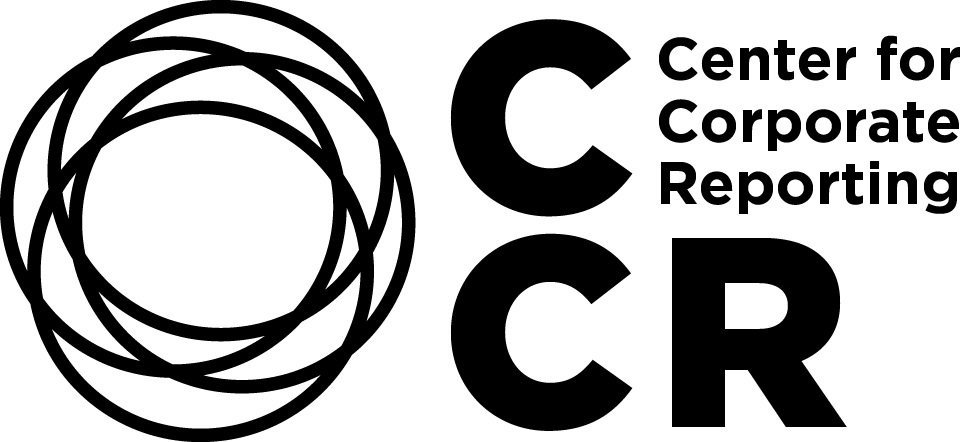In response to key stakeholders, many companies face considerable pressure to produce sustainability reports and often invest substantial resources into them. Despite the time and effort spent on sustainability reporting, companies don’t always capture the full benefit of sharing material, decision-useful information.
In response to this challenge, the World Business Council for Sustainable Development (WBCSD) developed Reporting matters in partnership with Radley Yeldar to help improve the effectiveness of corporate sustainability reporting.
Every year, WBCSD analyzes the fullest source of sustainability information from our nearly 200 member companies against a set of comprehensive indicators.
We use the compiled scores and data in two ways:
For member companies, we provide confidential scoring dashboards with analysis and anonymized peer group data and offer confidential scoring sessions to explain our findings.
For the broader public we compile the overall results and publish an annual overview of reporting trends within our membership, showcase good practice examples and provide high-level recommendations on reporting.
This year’s review process spanned 158 leading companies from 17 supersectors and 31 countries. The main Reporting matters publication provides good-practice examples as well as general trends and benchmarks over the past five years. This is particularly useful to business because insights can be shared across sectors for collective improvement.
Some key findings from this year include:
Reporting is improving
82% of member companies in our benchmark have improved their overall scores since baseline year 2014; 37% have improved their materiality score in this timespan. This is against the backdrop of an increasingly stringent framework.
Reporting on the Sustainable Development Goals (SDGs) is increasing
89% of reports reviewed acknowledge the SDGs in some way; 53% map their sustainability strategy to relevant SDGs and provide some evidence of activities. Both figures are improvements from our 2017 review cycle (79% and 45% respectively).
Integrated reporting is gaining traction
33% of reports reviewed combine financial and non-financial information, up from 22% in 2014; 18% are self-declared integrated reports. Reports that combine financial and sustainability information make up eight of the top ten reports and nearly half of the top quartile.
The Global Reporting Initiative (GRI) continues to the most cited standard setter
83% of reports reviewed reference the GRI Guidelines or Standards including 77% of combined and self-declared integrated reports; 54% have already transitioned to the GRI Standards launched in October 2016.
Links to governance are improving
39% of the 115 companies in our sample with ESG data on Bloomberg Terminals have links between sustainability performance and executive remuneration. Four of the five top scores we have awarded for disclosure around sustainability governance came from this year’s review cycle.
The future is digital
Only 20% of reports reviewed provide a digital-first experience; but 53% of member companies include the bulk of their report content online to complement their PDF report (2017: 44%). We have also seen a general shift towards external crosslinks to webpages that house static content (such as detailed information on the materiality process or sustainability governance structures).
This year’s publication also explored how companies are linking reporting and decision-making through three topic-specific addendum reports focused on climate change, water and human rights. These deep dives are linked from the main report and incorporate data from the Reporting Exchange. They center on the evolving regulatory and reporting context and explore the underlying processes companies use to address these three key issues. Each is backed up by a member interview demonstrating the links between reporting, performance and impact.
Reporting matters will continue into 2019 and beyond as WBCSD and its member companies work to improve corporate reporting on the road to a sustainable future.
For more on WBCSD’s reporting efforts, visit www.wbcsd.org and check out The Reporting Exchange – the global resource for corporate sustainability reporting.
About the author
Austin Kennedy
Austin Kennedy helps lead the annual Reporting matters review process and publication and supports several other initiatives in WBCSD’s Redefining Value program.
He holds a bachelor's degree in Economics & Business and Engineering Studies from Lafayette College and a master of science in Sustainable Development with an advanced certificate in Energy and Finance from HEC Paris. His professional thesis focused on the value companies can derive from obtaining external assurance on non-financial information.
Austin has prior non-profit, education and consulting experience in the United States, the Caribbean, Central America, Europe, and Southern Africa as well as research experience in corporate sustainability disclosures.
About the research partners
World Business Council for Sustainable Development (WBCSD)
WBCSD is a global, CEO-led organization of some 200 leading businesses working together to accelerate the transition to a sustainable world. We help make our member companies more successful and sustainable by focusing on the maximum positive impact for shareholders, the environment and societies.
Our member companies come from all business sectors and all major economies, representing a combined revenue of more than USD 8.5 trillion and 19 million employees. Our Global Network of almost 70 national business councils gives our members unparalleled reach across the globe. WBCSD is uniquely positioned to work with member companies along and across value chains to deliver impactful business solutions to the most challenging sustainability issues.
Follow us on Twitter and LinkedIn
Radley Yeldar
We’re an independent creative consultancy working to create a world that believes in business. For over 30 years, our team of 200 experts has worked with multinationals, start-ups and public bodies to solve complex challenges. As an integrated communications agency with leading sustainability expertise, we combine inspiration with evidence to create belief among all audiences. We help our clients define their story, communicate it simply, change behaviour and deliver results.


